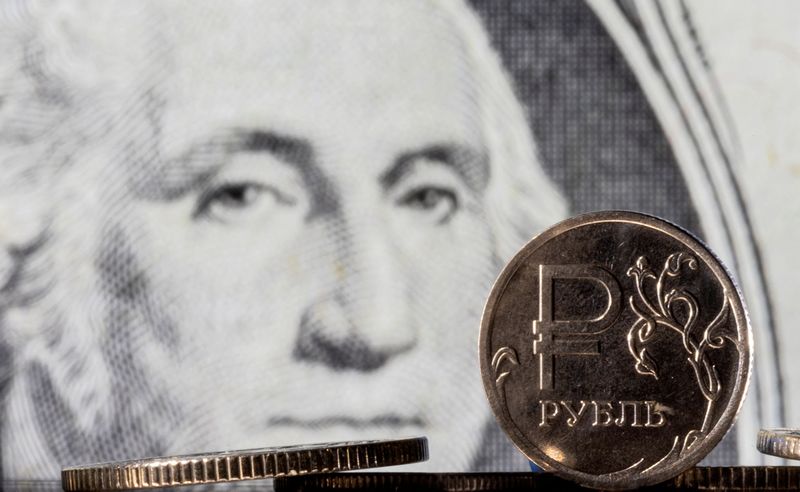By Steve Holland
WASHINGTON (Reuters) -The United States is considering blocking Russia’s ability to pay its U.S. bondholders by allowing a key waiver to expire next week, a U.S. administration official said on Tuesday, which could put Moscow closer to the brink of default.
Russia has so far managed to make its international bond payments despite Western sanctions, which have complicated the process of paying. The country has $40 billion of international bonds and last month made a late U-turn by making overdue bond payments to avoid default.
Russia has not defaulted on its external debt since the aftermath of its 1917 revolution and was rated investment grade up until its Feb. 24 invasion of Ukraine.
Now Russia has a looming May 25 deadline when a U.S. license allowing it to make payments is due to expire.
Bloomberg News reported earlier on Tuesday that the Biden administration is poised to allow the waiver to expire as scheduled.
"It's under consideration but I don't have a decision to preview at this time," the official told Reuters. "We are looking at all options to increase pressure on (Russian President Vladimir) Putin."
Bloomberg said the administration has decided against extending the waiver as a way to maintain financial pressure on Moscow.
Western sanctions introduced following Russia's invasion of Ukraine ban transactions with Russia's finance ministry, central bank or national wealth fund.
The temporary general license 9A, issued by the Treasury Department's Office of Foreign Assets Control on March 2, had made an exception for the purposes of "the receipt of interest, dividend, or maturity payments in connection with debt or equity."
That license has allowed Moscow to keep paying investors and avert default on its government debt, and allowed U.S. investors to continue to collect coupon payments.
It expires on May 25, after which Russia will still have almost $2 billion worth of external sovereign bond payments to make before the end of the year.

Some market participants had speculated that the Biden administration may extend the waiver, so as not to punish U.S. bondholders.
The U.S. Treasury Department did not immediately respond to a request for comment.